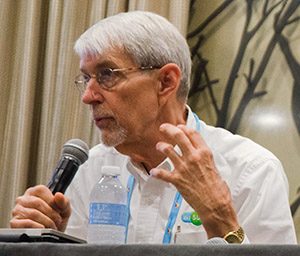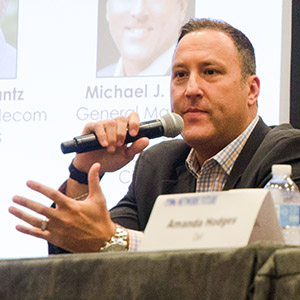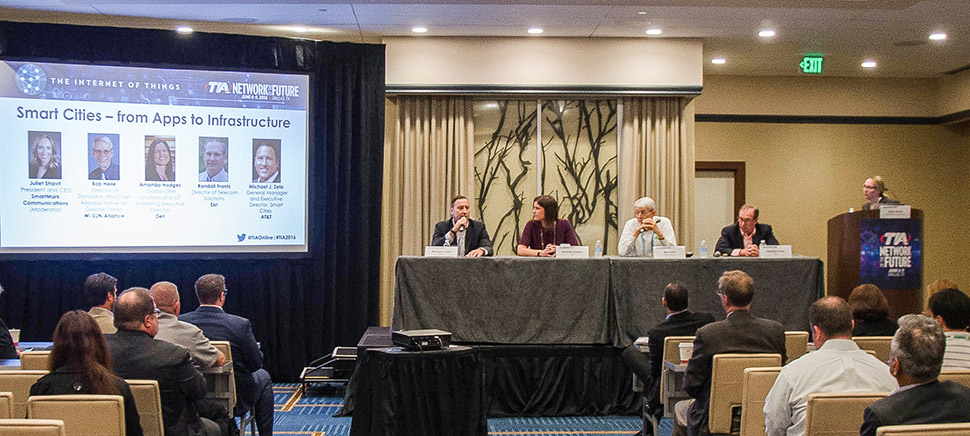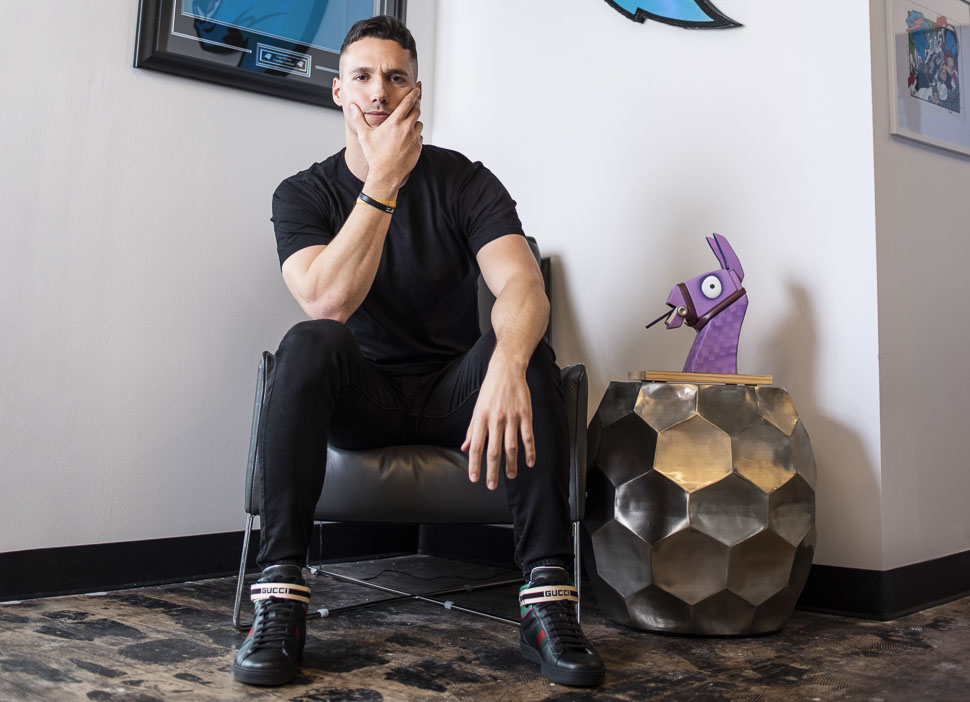SMART CITY EXPERTS DISCUSS WAYS TO UNIFY PROCESSES
Piece by piece, the world is becoming smarter, more interactive, and controllable.

Bob Helle talks about how cities need to evolve at the TIA conference in Dallas, Texas. Photo by Hannah Ridings.
Electric meters give real-time power usage. Up-to-date traffic alerts are the norm. And hailing a ride or a pizza at the touch of a button is just expected.
“Any one of these is part of a smart city, but not necessarily done in any coordinated basis,” said Bob Heile, director of standards and chief representative for Greater China for the Wi-SUN Alliance. “One of the challenges in planning a smart city is how do you coordinate all these miscellaneous efforts that are going on?”
The endgame for futurists is to create smart cities that find a way to unify all these processes into one seamless system.
Cisco has taken the term “Internet of things” concept a step further, coining the term “Internet of everything.”
“That’s really what we’re heading towards where we don’t think about it. We just connect to it.” -Bob Heile
“That’s really what we’re heading towards where we don’t think about it. We just connect to it,” Heile said. “Data flows and people can do things with the information.”
Heile joined a panel of smart city experts to discuss the topic at the Telecommunications Industry Association Network of the Future Conference at the Renaissance Hotel in Dallas on Tuesday afternoon.
In many ways, the Dallas Innovation Alliance and 900lbs of Creative are leading the charge toward that goal by building a living lab in the West End District of downtown.

Michael J. Zeto talks with the Smart Cities – from Apps to Infrastructure panel about advancements in technology. Photo by Hannah Ridings.
But there’s a long way to go before cities can totally purge all the out-of-date systems and technologies that exist. And it will cost trillions of dollars worldwide said Michael Zeto, general manager and executive director of smart cities for AT&T.
Cities can’t do it on their own as city budgets are already stretched thin.
“Every tax dollar counts,” said Amanda Hodges, global OEM solutions and IoT marketing executive director for Dell.
Instead, it will take public-private partnerships where the tech firms get involved, Zeto said.
Randall Frantz, director of telecom solutions for Esri, said the key is to get cities to share the data that they already produce.
“They don’t share data with departments, much less with their constituents,” Frantz said. “There’s a lot of value to be gained by sharing that data.”
This drive to make everything smart started with the mobile device nearly a decade ago.
“We now hunger to look at, talk to, and control more things.” -Bob Heile
“It is the thing that got us all feeling that we have to be connected 24/7,” Heile said. “We’re looking at things and figuring out that we can control things. We now hunger to look at, talk to, and control more things.”
“Boy, the next 10 years will be one hell of a ride,” he said.
For a daily dose of what’s new and next in Dallas-Fort Worth innovation, subscribe to our Dallas Innovates e-newsletter.




























